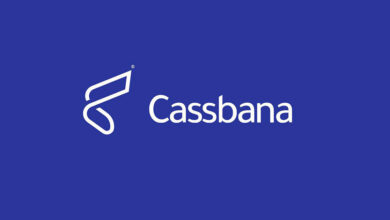Egyptian E-waste Recycling Company Looks Forward To Be The Next Umicore

Electronic waste (E-waste) is the fastest growing waste stream among solid waste worldwide. Also, 50 million tons is generated every year, with only 13 percent recycled. The rest are mostly disposed in landfills.
Reports from the United Nations (UN) predict this number to reach 65 million tons by 2017.
Recycling E-waste holds two advantages: the first is the typical advantage of protecting the environment from the danger of landfills and incinerators; the second is the extraction of valuable minerals.
A report issued in 2014 by the U.S. Environmental Protection Agency states that recycling 1 million smartphones produces 9,000 Kg from copper, 250 kg of silver, 24 kg of gold and 9 kg of Palladium.
If, however, this waste stream continues to grow at this rate, then by 2020 we will have a market of $50 billion of disposable E-waste.
Egyptian Entrepreneur Hacks E-waste Recycling
At a time where the Egyptian economy is facing several crises after the Egyptian pound dropped to a record low against the U.S. Dollar, the courage and hard work of visionary youth are the most needed.
Essam Hashim, a serial entrepreneur, recognized the dire necessity of having an E-waste recycling technology that would boost local recycling industries and, on a larger scale, help the economy by producing valuable metals and reducing the need for importing them.
Now, Essam has launched his own e-waste cost efficient shredder in Egypt and is preparing to launch it in Emirates as well. These steps comes after one month of Dr. WEEE launch, as a mobile app for the android users, for e-waste collection, so that he is closing the loop.
Meanwhile, he is looking forward to get franchisees for the African and the Indian markets, given that he has already signed his first franchising contract with an Indian business man.
“I’m working on developing a technology that can dismantle and shred E-waste and then let them pre-processed locally through our machines for recycling and metal extraction”, says Hashim.
About 3 years ago I went to Europe, and visited more than 40 factories,” Hashim said. “I benefitted a lot from the technology there. I’m really done with that now and I’m launching my company in Cairo and Alexandria, and in Emirates the next three months, then will enter the Indian market as it’s the biggest worldwide know in terms of e-waste opportunities.” he said.
It’s worth to mention, that Dr. WEEE has launched a pilot last May, within some International universities and schools to test the app, prove concept and create awareness about the brand and the culture.
In order to have his strategies materialized, Hashim approached governmental entities and others from the private sectors with the offer of partnerships. He refused to disclose the nature of these partnerships, simply saying that “My fieldwork is largely supported by environmental and industrial entities of the government of Egypt, which had begun to consider local E-waste recycling more seriously.”
Who is Dr. WEEE?
In order to create an interaction with electronic consumers in Egypt, Hashim created the cartoon character Dr WEEE, as a symbol of the E-waste collection. WEEE is an abbreviation of the term Waste of Electrical and Electronic Equipment. These include phones, laptops, computers, chargers, batteries, screens and pads.
Dr. WEEE is supposed to be launched through a web app that allows users to register for a garbage picking service. Every company partnering with Dr. WEEE will receive an E-waste collection box with its own brand printed.
Hashim’s team of developers made sure the user experience of the whole process was smooth, composed of only three steps: registration, command and confirmation (of picking up E-waste). Users also get redeemable points once they start contributing E-waste. The prizes won will be from electronic stores.
Also, the waste collection will be done by private cars, which “will help create opportunities for those looking for an extra source of income, as well as opportunities for those working in the factories, and finally; serving environmental and governmental economic causes,” said Hashim.
Hashim did not receive any local or regional investments yet, as he is relying on a self fund, which has so far cost him more than 2 million GDP (almost $115,000) through research and developing the hardware , the app and the market studies of Egypt, Africa and the rest of the region.
“I did not and won’t pursue the chance for investments before proving the practical value of my project,” he said. “I’d rather wait so my focus doesn’t shift to attracting investors.”
Aggressive Marketing and global attempts
Hashim’s marketing strategies include Facebook advertising, hands-on campaigns for awareness and advertising, and appearing on TV programs that host technology and economical topics in local Egypt.
At the same time, Hashim is partnering right now with an Emirati company that allows him to collect E-waste in Abu Dhabi, Dubai, Ajman and Al Sharjah. This partnership is the precedent of a huge factory that would take on the responsibility of recycling Emirates’ E-waste.
Hashim attributes his ability to penetrate the Emirati market to a number of degrees that he had obtained throughout his journey. These include a degree in managing E-waste from the United Nation of Nairobi, as well as a degree in archaeological assessment from Egypt.
Hashim aspires for the globalization of the E-waste recycling technology the he had been building; he aspires for that to happen through the Franchise way, so that an Eco business model would have four pillars, including collecting waste for recycling, selling them to the benefit of others, and extracting metals from the recycling process.
What really helps Hashim with his vision, the fact that he is a second-time entrepreneur, Essam has launched Spearink in 2006, as an e-waste cartridges remanufacturing company that operates on a franchise model, providing the machines and training on how to refill refurbished cartridges.
Based on these givens, shall we expect that Dr. WEEE will make it worldwide and be the next Umicore in the Arab region?



